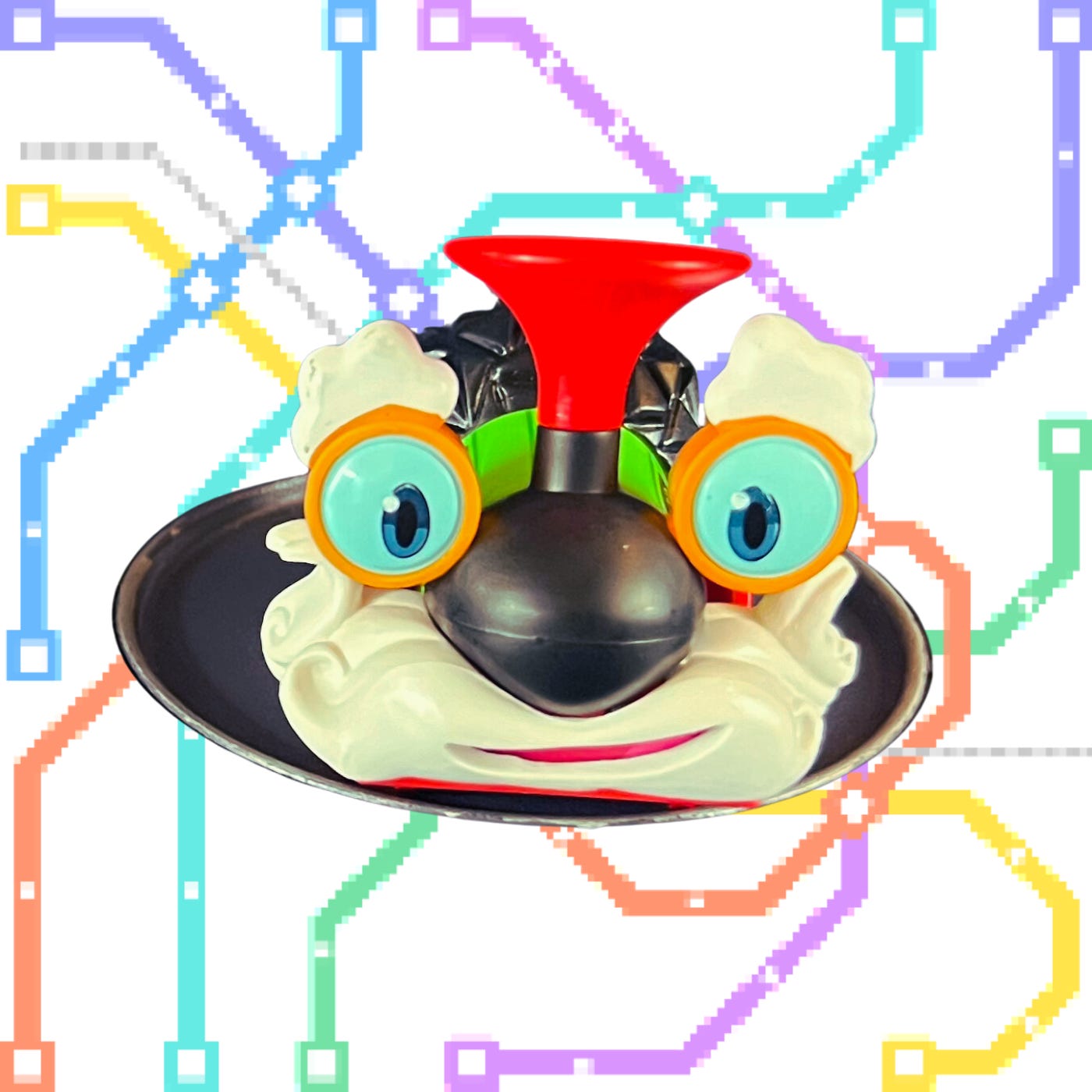The Ticket is not a Reservation
Map-terrain relationships and our reliance on exacting digital models
It’s been a few weeks since my last Post! We moved from Italy to The Netherlands, taking a long train ride through the breathtaking Swiss Alps. Sure, I could talk about the castles floating Miyazaki-like on crystal blue lakes, or the quaint villages nestled in Matterhornian foothills, but my mind races on to other things. Like how we’re at the mercy of digital models.
The moment we went to board the train, I realized our ticket was missing entire sections, like train carriage, seat numbers…important things when you’re traveling with small children and lugging your entire life in 8 suitcases around the world. This poem is about those moments when the digital representation of the world doesn’t match reality, and how we reconcile the difference.
The system had failed me
quietly, behind-the-scenes
only detectable
by the absence of things seen
scanning, down-screen
seeking what’s expected to be
there, the space between
little boxes, squared clean
and left empty
entire landscapes
made missing
deliberately washed away
submerged, off-page
lurking just below sea level
both there and not there
in that ordinary unkind of way
“You have a ticket, paid…ok”
“and yet, I see no reservation”
Train-keeper establishing scene
His eyes locked, on screen
not really sure what he means…
“The System doesn’t like it this way”
straight from the Station
in a language I can’t read
His fingers
keep tapping
as it dawns on me
the Swiss don’t really do background music, do they?
it’s kinda pleasant
problem solving, here
in public, just you and I
without Katy Perry
but anyway, I’m sidetracked
no reservation
was that a question, passively aimed at me?
surely not
my inner monologue
outpaced, unseen
still, looking out for eye contact
if I wait long enough, he usually
answers his own question
“it’s always this route! Basel to Frankfurt”
even-keel, under wheel it’s all third rail frustration
down here, where he keeps the demeanor, decently
he must be ten-layers deep
in whatever twisting labyrinthian matrix
determines my seat
hopping fault lines, guiltless without glee
on the surface, I still want an admission
so this is what thinking out loud looks like
in another culture, breathe
“The System never assigns seats, this way”
He reaches out, beside himself
without looking
Kamaji arms, practiced and on the way
hovering past pamphlets, schedule cards, and form tables
everything accordingly cubbied
and picked
from the appropriate tray
cardstock, measured
and folded neat, on crease
guides red felt over my reservation
“This one won’t do, I made some changes”
“Ignore what it says. You’re going to Frankfurt, anyway”
In so many words, he explained a deft maneuver
tricking the System into having our way
to get from A to B
sometimes looks like A to C
models revised, and struck-through
we slip, overriding the System
open, onto paths made new
"Thank you"
is all I can muster, in the moment
red-lined ticket/reservation, in-hand
and hypothetically true

OK, I know what you may be thinking: all that for a simple ticket mistake? For some reason, this mundane experience stood out to me as a grounded way to think about how all digital models can fall short of reality, and how when it comes down to it, we rely on the rationality and empathy of other people to make things right. Especially when “mistakes” are systemic.
In this case, I had paid for a ticket and done everything “right” but the system, on this one particular route, notoriously does not assign seats to passengers. There were multiple other people on the train having the same issue: the area where the Car and Seat would normally be filled in on the ticket was just…empty. The experience I had in the lobby of the train station was a good opportunity for me to be patient, calm, and trust that a human would fix the very obvious glaring issue made by machines. And sure enough, it all worked out.
Then, I started taking this thought process further…with metaphors of maps, and the hidden potentiality of opportunities submerged just out of reach, below sea level (our interface above land). Digital Systems can gatekeep access, where if the wrong bit is flipped, or you don’t fit the algorithm’s criteria, all of your options disappear. You fade into the page, below the surface, out of reach. We see this when people have 300K followers, and their Post reaches 300 people (or the mysterious “shadow-banning” based on behaviors). We see this when a Tech Platform decides what and how to represent countries on the Map or a Bank automates loan decisions. This was the case even before Big Tech, with historical red-lining, but now, it’s even less transparent. In my example, the stakes are low, harmless even - I can always figure out train tickets, but in many other cases today, the “map is not the territory”and we feel increasingly powerless to affect change. Even the phrase to describe this concept uses State ruler terms like “territory” to give our power away. We’d probably be better off unloading that baggage in favor of “the map is not the terrain.”
With this poem, I’m putting the intention out there that we make more in-person edits, suggestions, and tweaks to things - get out a huge red marker - and look for ways to shimmy through the gaps to figure out better solutions to our problems, directly. In time, the models change as the Systems get updated or abandoned, and we can get on the train another way, together.
I’d love to hear in the Comments: Have you fallen in the cracks between the System and Reality, and how did you reconcile? How do you think we can gain more leverage back from faceless Systems?